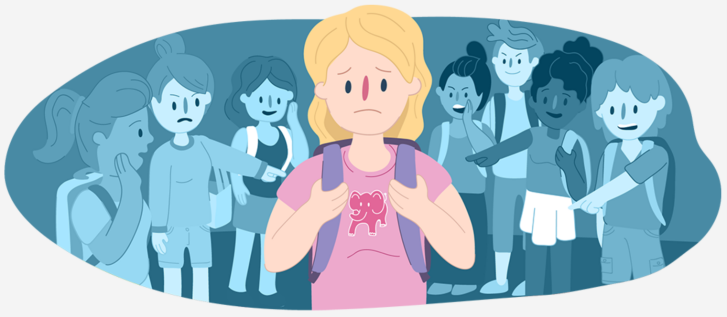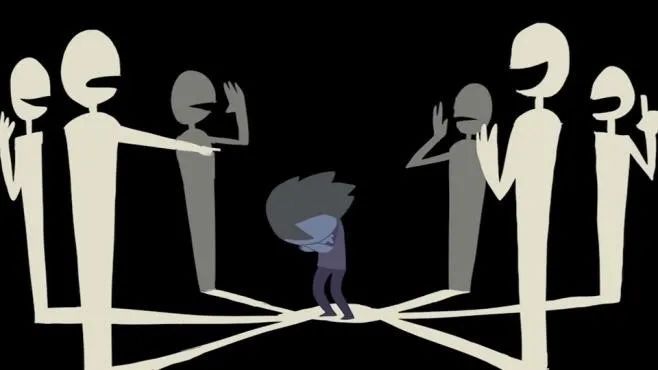
围炉,大学生思想、经历的交流平台。以对话为载体,发现身边有意思的世界。 香港大学|上海纽约大学|复旦大学|香港城市大学|香港中文大学|北京大学|中国人民大学 | 清华大学 | JointU综合联校 | 哥伦比亚大学
Talking about "scheming girls" and "simple boys" | Around Furnace · FDU

In "A Night Around the Fireplace: The Morality, Creation and Identity Controversy Behind a Kidney", we explore the impact of gender on narrative. The disputes between two female writers are often portrayed as gossip about "women pulling their heads and flowers", returning to The stereotype of "mean girls" and "women are more things". The "mean girls" in the English context was originally proposed by scholars to summarize the implicit attacks that adolescent girls impose on each other (such as white eyes, rumors, and ignoring each other), but in recent years, they have been featured and become a stereotype of girls. . The "scheming girl" in the Chinese context is not only used to describe those women who are different in appearance, good at seducing men and framing friends, but also used to simplify the motives of women's behavior - "Women are more things." In contrast, men are always regarded as careless and unintentional "simple boys", and the friendship between them is also a "brotherhood" that is not plastic. This issue of Night Talk starts from the own experiences of the five members around the furnace, and discusses the stereotypes of "scheming girls" and "simple boys". Coconut and Shanchang reflect on their experiences as mean girls and bullying bystanders. Katyds shared the friendship of girls who were the opposite of "mean girls" in the university. Jidou recalled his experience of being "discriminated". Pointing out that meanness and sarcasm in boys also exist and cause harm, Goldfish analyzes the myths and systemic problems behind the labels of "scheming girl" and "simple boy".

Coconut | I have been a girl with good grades and a "normal" appearance that meets mainstream requirements since I was a child. I have never encountered bullying, but it is precisely this "good boy" trait that puts me in a position where it is easy to win small groups and launch hidden activities. location of sexual assault. When I was in elementary school, when faced with a girl I didn't like (and the other party liked me very much), I would not express my attitude towards her directly. Instead, I did not invite her through birthday parties, and specifically did not choose her to be my roommate, etc. behavior to hurt her indirectly. At that time, I may have felt that I was a good girl in the eyes of teachers and parents, and the other party was also a popular girl in the class. If I broke up with her directly, I would no longer be able to play the good girl, and I would no longer be popular. And not liking each other at that time was also out of a toxic misogyny thinking - I always use "bitch" to speculate on girls, and always feel that she must show a certain quality to attract boys' attention. "scheming bitch", "green tea bitch", "man's bitch"... Social culture has created many "bitches" to categorize women's abuse, especially the abuse of her overtly and secretly "seducing" men. I was immersed in poison, and I produced poison without knowing it. Alas, what a shame to think about it now! As Chen Yaya said, the reason why the field of marriage and love is particularly important to women is not precisely the result of gender oppression?

When I was in elementary school, I also sincerely believed that "playing with girls is really complicated, but boys are really easy". Thinking about it now, this is mostly the poison of idol dramas. There is always a "scheming girl two" in idol dramas, launching various "hidden attacks" in an attempt to take away the love of the male protagonist for the female protagonist; and most of the boys in it are infatuated and considerate, very "simple". Back in real life, some girls may or may not be "scheming", but at that time I always tended to think she was "scheming", thus confirming my stereotype of "scheming girls", so I kept returning lock up. But this kind of thinking will be automatically dispelled in a place where there are few girls. When I was in junior high school, I was selected into a competition class with a disparity in the ratio of males to females (why is the disparity between males and females is another gender issue), and I became a girl with average grades and a properly disadvantaged group. I had a distinct feeling of being stared at at the time, and the patriarchal elephant was clearly visible. (For example, a group of boys shouted pornographic jokes in the class, sometimes substituting the names of several female classmates) Even, I would rather thank the "toxic" environment of the competition class for making me gender-conscious.
The role of grades and gender and their combined role in bullying is worth exploring. I once watched and participated in the bullying of the two girls A and B in the ordinary class by everyone in the competition class. As mentioned above, the competition class is a typical boy's club. Boys think that A is ugly and B has big breasts and is violent (in fact, they are only familiar with A and B, but don't know A and B), so when they want to abuse ("trick") other boys, they say "You love A!" "You love B!", a few girls just watched, sometimes "joking" a few words. My mom also knew at the time that we were "joking" B. She told me that it was wrong to do this, in case the reputation of B was smeared by us. I said it was okay because the B was just a symbol and everyone just wanted to vent. —— But thinking about it now, it is precisely because we only regard her as a symbol that we will not take into account her feelings as a person when we "joke"!
I've always wondered, if I had been taught true equality back then - "You're wrong to 'make fun' of them because you don't see them as equals" - would I stop watching, Stop bullying. But what makes me feel powerless is, as a girl with average grades and no right to speak, how effective my restraint can be. (Of course, if I were a boy, I might encounter other difficulties, such as being bullied by the male group because I stopped bullying.) What makes me feel powerless is that in a competition class that is inherently unequal , students are already privileged (better teachers) because of their excellent grades, how can you be convinced that "you don't treat them as equals" is justified?
Talk about transformation. After I went to college, I read the "Naples Four Parts", and I couldn't help but think deeply about the female friendship portrayed in our social culture - either pulling a small group or "poisonous girlfriend". To change from "mean girls" to "my genius girlfriend", I think the key is to recognize the complexity of people, the complexity of relationships. It is not used to threaten "we will break up if we don't do this" because of the importance of the relationship, nor to carry out secret attacks because of the importance of the relationship, but to face the problem more bravely because of the importance of the relationship. And if words such as "scheming" and "bitch" still pop up uncontrollably in our minds, we can deeply reflect while "forgiving" ourselves. Although the "misogyny" mentality is difficult to eliminate, it can be the beginning of a change in the understanding of the concept of "feminism". As Chizuru Ueno said, "When a person becomes a woman, he must first accept the historical misogyny carried by the category of 'woman'. If you are satisfied with the position designated by this category, then 'woman' It was born. However, a feminist is someone who is dissatisfied with the designated position and cannot adapt to misogyny. Therefore, there is no feminist who does not start from misogyny. To be a feminist is to Means entanglement and struggle with misogyny".

Jidou|Because the educational level in my area is relatively backward, I transferred schools many times in primary school in order to obtain better educational resources. In all three elementary schools I attended, I was "bullied" to some extent for different reasons. Here I put the word bullying in quotation marks, because I can understand the source of the other party's emotions and discrimination against me while suffering a certain amount of physical harm and psychological pressure. "Bullying" to me seems to be an objective product of the environment and a necessary commitment.
One of the main reasons I've been bullied is for good grades. Because after the transfer, the original first place will be squeezed out, so it is easy to cause other people's dissatisfaction. The more serious one was when I was in the fourth grade, and the original No. 1 cried outside the classroom because he did not perform well in the exam. I couldn't bear it at the time, so I went to comfort him, but I didn't expect that he might be so angry that he kicked me in the stomach. I was in pain and shock. Reflected to the teacher, but she only comforted me a few words. The shoe prints on the white clothes are still deeply in my mind, but the emotions at that time have already faded away with time. For me, such experiences didn't hurt me very much, because I can still make a name for myself and win the friendship of most people by getting along with others.
But another "discrimination" that I encountered later ran deeper into all of my life. I also put quotation marks on the discrimination here, because I think it still seems to be an objective consequence caused by myself. My face looks different from "normal" from the side because of an overgrown jaw, my lack of self-confidence grows, puberty women quickly feel the male gaze, and boys start talking about who has the bigger breasts My chest is small, who is black and who is white, and my chin will inevitably become a topic of conversation.
The above two kinds of "bullying" are hard for me to think of as really malicious bullying. In the former case, I was envied and hated because of good grades. After all, such a temporary prejudice can be improved by getting along and developing with my classmates. In this kind of "bullying", I also know that I am not There is no subjective malice or error; in the latter type of "bullying", the ridicule and irony aimed at innate characteristics are very difficult for me to change and reverse.
In the process of adolescent development and growth, the comments of men of the same age on the physical and physical characteristics of women run through it (not that women do not have corresponding comments on men, but only based on personal observations, men are more courageous to talk and spread in public places. ). In this stage of education, the definitions of beauty and ugliness are often definite and single. Just as Mary Douglas talked about the cultural constructs of cleanliness and filth, the environment and education that teenagers are exposed to is not sufficiently inclusive of things and their characteristics that are outside of simple order and structure. Therefore, those with dark skin, obesity, and deformities are inevitably difficult to connect with beauty, and such girls often become the object of ridicule and ridicule by boys.
In my situation at the time, although I was able to form a good and friendly relationship with my classmates through study and communication, when I was criticized by boys as a "girl", it was still difficult for me to escape these discussions that made my inferiority deeply rooted in my heart. . The feeling of being humiliated is always strong when the boys are playing you guess me on the blackboard and drawing a long chin. I think for men, some of them will go through a process of self-reeducation in their later studies and life, and gradually become more open and tolerant, while some men may continue to maintain their "confidence" and stereotypes. (The same is true for girls.) But no matter how they change, I, who have been hurt and stinged, still want to fill the inner inferiority complex that has always existed. I know the reason for accepting myself, but I have no confidence in this process of constantly rebuilding my self-confidence.
So in my opinion, mean girls and simple boy are not completely true descriptions - boys' meanness and sarcasm can also cause harm, and regardless of gender, they may be temporary under the guidance of cultural environment and education at this stage A product with a one-sided understanding of the world and life. Perhaps the fundamental improvement of education in the future is worth looking forward to. I look forward to further tolerance of diversity and liberation of women's gaze on men.

Shanchang|Like Coconut, I have never been bullied, and frankly speaking, I should belong to the kind of group that has a "dominant position" in society. The best friend forms a kind of "iron X angle" relationship, and the relationship with the girl is also considered harmonious (just like the carefree campus life described in Yang Hongying's novel). There are few real and specific "bullying" stories between or against girls like Coconut in my memory, and there is almost no experience of bystanders, so it's basically impossible to talk about. But I remember that since the upper grades of elementary school, there were so-called "gangs" among boys, and there was "bullying". When I was in a chaotic school in junior high school, the bullying became worse. There were two or three more silent and introverted boys in the class at that time, and I knew they would give money to the boys who were already in the "society". Once after class, I saw a boy A, the "little leader" of the "gang" at that time, asked boy B for money. I stopped him at the time, but A didn't intend to ask for it, but later I asked B, knowing that B still gave A to A, because he was afraid was later retaliated against. I was not one of those who were "bullied" at the time, and I even had a certain ability in my class to play a role in some face-to-face "bullying" incidents, and I would hardly be retaliated for. But what I can do is still very limited, and when I am outside the circle of the "bully", the degree of involvement must be very weak, which seems to be a paradox, but it is a reality. There is a "big boss" above the "little boss", there is a toilet outside the classroom, and there is a path to go home. They can always find other pipes to bypass your minor "trouble", so that the "well water" will not make "river water" in the end. ".
In addition, in a sense, what is even more helpless is that in some cases, I just get along better with those "bullies" classmates. And even if I speak to the bullied classmates out of simple justice and sympathy during a bullying incident, we often don't really become friends after that. For example, A and B in the above incident. A and I often play basketball in physical education class. Although we are not good friends, we are familiar with each other. But B usually doesn't participate in activities and is not easy to get along with (this sometimes becomes the reason for them to be bullied), I really won't be friends with him. Personality and bullying incidents sometimes interact with each other. In some cases, such a loop exists.
This got me thinking more. All experiences and circumstances will create a person's personality. "Bullying" is indeed evil, but the "structural problems" in it cannot be ignored either. When encountering a person who disgusts me in reality, I gradually learn to think more about his past and the "evil" he has encountered, rather than making judgments based on the current situation. But this sometimes hits a limit, because repulsive words and deeds are what happens in reality, and the ego depletion of accommodating unhappiness and disgust is real. At what point does kindness not become excessively promiscuous? How big is the explanatory power of the "past", and what are the limits of the consideration that should be accorded with it? There is a scale between determinism and individual agency that can be ambiguous and often confusing in specific contexts. I can only make myself aware of my existence at the moment and bear the burden of the past at the same time. I should be aware of my luck and avoid being bound by misfortune. At the same time, the existence of others at the moment also bears all the past.

Katydids | Recently, I saw a senior Yibit commenting on "The Legend of Zhen Huan" on Douban. He mentioned that when adult women get together, there will naturally be an atmosphere of intrigue. Biography of the Academic Team", I think everyone is very cute, so I couldn't help but babble unilaterally. I feel that after I went to college, I didn't feel any "intrigue" between women at all. I saw a culture with strong social content composed of memes, emoticons, etc. I also saw female friends traveling together and taking beautiful photos of each other. Photos, honest sharing, honest talk of mutual support, and I've seen female friends (and sometimes myself) open up or resolve conflict in a straightforward and somewhat aggressive way. These atmospheres that are completely different from "scheming girls" are due to the maturity and progress of the female students on the one hand, and on the other hand, I guess it is also related to the atmosphere of being loose and free to find partners independently. There are more compatible people and less aura. People who get along with each other, have a good time and have small conflicts, these are all normal, and can be solved by adjusting the interpersonal distance under the condition of free flow of interpersonal relationships (according to this conjecture, in the dormitory relationship, The conflict between unavoidable friction and bound-like intimacy may lead to an easier existence of invisible isolation or wrestling. In addition, after I went to college, I found that men were in a bound "community" that could not be openly torn apart. There also seems to be so-called "scheming" behaviors.) What I'm more concerned about is that when female classmates publicly condemn or even attack others (especially on issues such as gender) with strict "right and wrong" standards, even if they are sometimes rational , also appear very "Pharisaic" (that is, dogmatically follow and view "right and wrong" standards). Of course, if men have similar behavior, it is likely to be disgusting. But I think maybe we can be a little more tolerant of openly criticizing or even attacking others, especially women who openly criticize others, at least those who openly criticize others have the courage to speak out. .

Goldfish | The labels of "scheming girl" and "simple boy" on the one hand reflect our subconscious value orientation towards relationships: relationships should be simple. The question that arises from this is: is a "simple" relationship really a better relationship? Or, are relationships really that simple? The relationship between the salesperson and the customer is very simple, but obviously we are not satisfied with just having such a relationship.
Ellen Goodman in The Tapestry of Friendship describes female camaraderie and male camaraderie (according to the stereotype) as friends and buddies, respectively. The relationship between Buddies is often simple, connected and identified with each other (mutual masculinity) through common activities (sports, competitions, careers, etc.), a "you are OK, I'm OK" relationship. Both parties can have a long-term relationship and face difficulties together, but they cannot reveal their vulnerable sides to each other. The relationship between Friends is the opposite. They do not confirm the relationship through mutual recognition, but accept each other - that is to say, they not only witness each other's bright side, but also embrace each other's vulnerable side. At the end of the article, Goodman also pointed out that this "female version" of friendship has gradually become a recognized ideal friendship. In this process of dismantling prejudice, we found that because people have a fragile side, relationships should also be multi-faceted and able to carry this complexity.
However, even though we have now readily accepted that the complexity of relationships lies in carrying fragility, we obviously have not dared to admit that the complexity of relationships is that we are not completely selfless saints, and due to the characteristics of human socialization, we are not Always express our aggression like beasts. The "scheming" of girls is to plan for themselves secretly, and the "simple" of boys is to be open-minded and unconcerned; but is the adult society really like this? In fact, such opposing fantasies are often imposed only on adolescents or children. Girls are thought to be more precocious, so we project upon them our disappointment and distaste for the relationship model between socialized adults, while boys are fantasized to be free from "contamination."
On the other hand, the labels attached to boys and girls also come from society's expectations for gender division of labor. Women are considered to be good at dealing with feelings and relationships, while emotions are considered redundant in the logic of social production and instrumental rationality, something that only exists in the private domain, is not worthy and should not be spoken in the public domain. . When the society leaves emotional labor to women as a matter of course (for example, educating girls to be careful and considerate of others), it also considers emotional labor to be low-level labor, so no matter how good women are in dealing with relationships, it is only "scheming"—— Not only is it superfluous and useless, it is also not on the table.
Although we feel that emotional and relational issues are not on the table, it is clear that our way of dealing with these "small problems" is very poor. Although school is the most important place for children to learn how to get along with others, emotional education is rarely provided in schools, especially schools in the test-oriented education system. On the one hand, adults expect children to be pure and flawless, and on the other hand, they use instrumental rational logic to manage schools, thinking that interpersonal relationships are just playing games compared to grades. But just as adult societies cannot truly function as machines, power-shaped relationships between children cannot be excluded from a system that only sees grades. There are many malicious harms in school bullying that need to be dealt with more seriously, and many harms that can be avoided through emotional education.
Text | Coconut Jidou Good Growth Katydid Goldfish
Figure | From the Internet
Reviewer | Huang Yanzhong
WeChat editor | Zhang Yuxuan
matters Editor | Marks
Around the Fire (ID:weilu_flame)

The pictures in the text are not used for other purposes without consent
You are welcome to comment below the article to exchange discussions with the Ios team and other readers
If you want to know about the fireplace and read more articles, please pay attention to this official account and click the corresponding menu column on the official account page


Like my work?
Don't forget to support or like, so I know you are with me..
Comment…